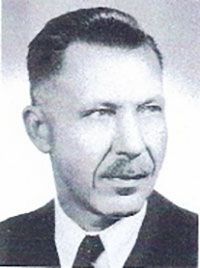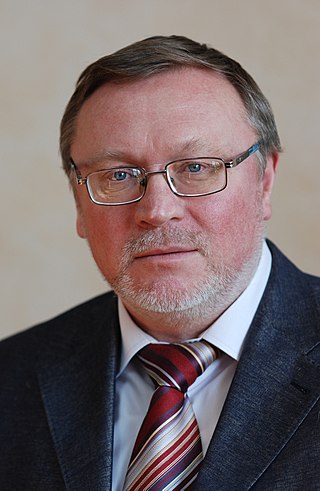Related Research Articles

Cultural anthropology is a branch of anthropology focused on the study of cultural variation among humans. It is in contrast to social anthropology, which perceives cultural variation as a subset of a posited anthropological constant. The term sociocultural anthropology includes both cultural and social anthropology traditions.

Social science is one of the branches of science, devoted to the study of societies and the relationships among members within those societies. The term was formerly used to refer to the field of sociology, the original "science of society", established in the 18th century. In addition to sociology, it now encompasses a wide array of academic disciplines, including anthropology, archaeology, economics, geography, linguistics, management, communication studies, psychology, culturology and political science.
Culture theory is the branch of comparative anthropology and semiotics that seeks to define the heuristic concept of culture in operational and/or scientific terms.

An academic discipline or field of study is a branch of knowledge, taught and researched as part of higher education. A scholar's discipline is commonly defined by the university faculties and learned societies to which they belong and the academic journals in which they publish research.

Sir Edward Burnett Tylor was an English anthropologist, and professor of anthropology.

George Peter ("Pete") Murdock, also known as G. P. Murdock, was an American anthropologist who was professor at Yale University and University of Pittsburgh. He is remembered for his empirical approach to ethnological studies and his study of family and kinship structures across differing cultures.

The sociology of scientific knowledge (SSK) is the study of science as a social activity, especially dealing with "the social conditions and effects of science, and with the social structures and processes of scientific activity." The sociology of scientific ignorance (SSI) is complementary to the sociology of scientific knowledge. For comparison, the sociology of knowledge studies the impact of human knowledge and the prevailing ideas on societies and relations between knowledge and the social context within which it arises.
Leslie Alvin White was an American anthropologist known for his advocacy of the theories on cultural evolution, sociocultural evolution, and especially neoevolutionism, and for his role in creating the department of anthropology at the University of Michigan Ann Arbor. White was president of the American Anthropological Association (1964).
Sociocultural evolution, sociocultural evolutionism or social evolution are theories of sociobiology and cultural evolution that describe how societies and culture change over time. Whereas sociocultural development traces processes that tend to increase the complexity of a society or culture, sociocultural evolution also considers process that can lead to decreases in complexity (degeneration) or that can produce variation or proliferation without any seemingly significant changes in complexity (cladogenesis). Sociocultural evolution is "the process by which structural reorganization is affected through time, eventually producing a form or structure that is qualitatively different from the ancestral form".

Vyacheslav Vsevolodovich Ivanov was a prominent Soviet and Russian philologist, semiotician and Indo-Europeanist probably best known for his glottalic theory of Indo-European consonantism and for placing the Indo-European urheimat in the area of the Armenian Highlands and Lake Urmia.
Critical ethnography applies a critical theory based approach to ethnography. It focuses on the implicit values expressed within ethnographic studies and, therefore, on the unacknowledged biases that may result from such implicit values. It has been called critical theory in practice. In the spirit of critical theory, this approach seeks to determine symbolic mechanisms, to extract ideology from action, and to understand the cognition and behaviour of research subjects within historical, cultural, and social frameworks.
The following outline is provided as an overview of and topical guide to anthropology:
Robert Leonard Carneiro was an American anthropologist and curator of the American Museum of Natural History who is widely held to be one of the prominent sociocultural evolutionists. He is mostly known for his Circumscription theory which explains how early political states may have formed as a result of interactions between environmental constraints, population pressures, and warfare.

Nikolay Nikolaevich Kradin is a Russian anthropologist and archaeologist. Since 1985 he has been a Research Fellow of the Institute of History, Archaeology and Ethnology, Far East Branch of the Russian Academy of Sciences in Vladivostok. He was Head and Professor of the Department of Social Anthropology in the Far-Eastern National Technical University, and also Head and Professor of the Department of World History, Archaeology and Anthropology in the Far-Eastern Federal University. Corresponding Member of the Russian Academy of Sciences since 2011 and full Member of the Russian Academy of Sciences since 2022.

Sociology is the scientific study of human society that focuses on society, human social behavior, patterns of social relationships, social interaction, and aspects of culture associated with everyday life. Regarded as a part of both the social sciences and humanities, sociology uses various methods of empirical investigation and critical analysis to develop a body of knowledge about social order and social change. Sociological subject matter ranges from micro-level analyses of individual interaction and agency to macro-level analyses of social systems and social structure. Applied sociological research may be applied directly to social policy and welfare, whereas theoretical approaches may focus on the understanding of social processes and phenomenological method.

Culture is a concept that encompasses the social behavior, institutions, and norms found in human societies, as well as the knowledge, beliefs, arts, laws, customs, capabilities, attitude, and habits of the individuals in these groups. Culture is often originated from or attributed to a specific region or location.
The Tartu–Moscow Semiotic School is a scientific school of thought in the field of semiotics that was formed in 1964 and led by Juri Lotman. Among the other members of this school were Boris Uspensky, Vyacheslav Ivanov, Vladimir Toporov, Mikhail Gasparov, Alexander Piatigorsky, Isaak I. Revzin, and others. As a result of their collective work, they established a theoretical framework around the semiotics of culture.
Social anthropology is the study of patterns of behaviour in human societies and cultures. It is the dominant constituent of anthropology throughout the United Kingdom and much of Europe, where it is distinguished from cultural anthropology. In the United States, social anthropology is commonly subsumed within cultural anthropology or sociocultural anthropology.

Fuad Mamedov Teyub oglu is a professor of culturology and Chair of the History Department at the Academy of Public Administration (Azerbaijan). He is the founder of Culturology in Azerbaijan and also the President of the Cultural Association Simurgh.
Cultural evolution is an evolutionary theory of social change. It follows from the definition of culture as "information capable of affecting individuals' behavior that they acquire from other members of their species through teaching, imitation and other forms of social transmission". Cultural evolution is the change of this information over time.
References
- 1 2 3 Leslie A. White (21 November 1958). "Culturology". Science. New Series. 128 (3334): 1246. doi:10.1126/science.128.3334.1246.a. JSTOR 1754562. S2CID 239772878.
- ↑ Mikhail Epstein, Transcultural Experiments: Russian and American Models of Creative Communication. New York: St. Martin's Press (Scholarly and Reference Division), 1999, Chapter 1: From Culturology to Transculture
- ↑ specialties Archived 2007-04-07 at the Wayback Machine (in Russian)
- ↑ "Философский факультет". Archived from the original on 2015-09-07. Retrieved 2015-08-26.
- ↑ "culturology" . Oxford English Dictionary (Online ed.). Oxford University Press.(Subscription or participating institution membership required.)
- ↑ For example: White, Leslie A. (1949). "The expansion of the scope of science". The Science of Culture: A Study of Man and Civilization. Evergreen books, volume 105. New York: Grove Press. p. 87. Retrieved 27 July 2024.
[...] a supra-psychological science of culture: culturology.
- ↑ For example: White, Leslie A. (16 June 2016) [1959]. "Preface". The Evolution of Culture: The Development of Civilization to the Fall of Rome (reprint ed.). Abingdon: Routledge. p. xx. ISBN 9781315418568 . Retrieved 27 July 2024.
Recently, Julian Huxley has presented, as a matter of course, as a thesis that does not need to be defended, the theory of evolution as being as relevant to culturology as to biology and quite as necessary to its development.
- ↑ Compare: White, Leslie A. (1949). "Culturological vs. Psychological Interpretations of Human Behavior". The Science of Culture: A Study of Man and Civilization. Evergreen books, volume 105. New York: Grove Press. p. 121ff. Retrieved 27 July 2024.
- ↑ White, L. (1959). The Evolution of Culture: The Development of Civilization to the Fall of Rome. McGraw-Hill, New York.
- ↑ White, Leslie, (1975) The Concept of Cultural Systems: A Key to Understanding Tribes and Nations, Columbia University Press, New York
- ↑ See: White, L. A. (October–December 1939). "A problem in kinship terminology". American Anthropologist. 41 (4). Washington, D.C.: 571. doi:10.1525/aa.1939.41.4.02a00040. hdl: 2027.42/99672 .
Application of the viewpoint and principles of the philosophy of evolution is as essential to the solution of many problems in culturology as it is in biology or physics.
- ↑ Bunge, Mario, (1998) Social Science Under Debate, Toronto: University of Toronto Press
- ↑ "CULTUROLOGY - Definition - A Scientific Approach to the Study of Culture". culturologia.webnode.com. Retrieved 2021-09-22.
- ↑ Bunge, Mario, (2009) Political Philosophy - Fact, Fiction and Vision, Transaction Publishers, New Brunswick
- ↑ Xintian, Yu (2005) "Cultural Factors In International Relations", Chinese Philosophical Studies. Archived 2010-04-10 at the Wayback Machine
- ↑ Xintian, Yu (2009),"Combining Research on Cultural Theory and International Relations"